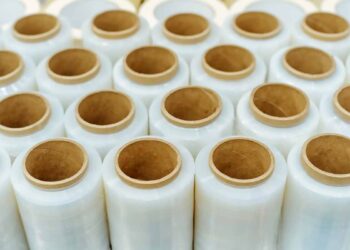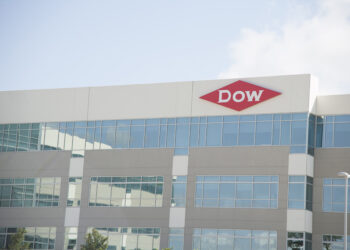The analysis, published on Nov. 14, focuses on a strategy to recover non-bottle plastics, particularly films, for processing via chemical recycling methods. Chemical recycling is an umbrella term that generally refers to a wide array of processes that use heat, pressure and solvents to break down plastics into their base chemicals, which can then be used to make new plastics or other products.
The consulting firm’s proposed solution aims to bridge the disconnect between the waste management industry, which sends lots of non-bottle plastic packaging to landfills because it doesn’t have a market for the bales, and plastic producers and brand owners, who want additional feedstock to produce more post-consumer resin (PCR) for brand owners.
As one solution, McKinsey points to the development of secondary sortation facilities, which it calls feedstock preparation facilities (FPFs). The facilities would take films and other challenging plastics that materials recovery facilities (MRFs) are now landfilling and conduct further sorting and processing, producing feedstock that meets specifications for chemical recycling plants coming on-line.
McKinsey said strong pricing for PCR can provide underlying economic support for the additional costs. Yet chemical companies could help give MRF operators the confidence to make additional sorting investments by stepping up first.
“The chemical industry, in particular, can help signal a strong and growing demand for feedstock and can help to finance the mobilization of the waste-management industry, through either direct capital investment or offtake arrangements,” the article concludes. “This could help build confidence with the waste-management industry, which could then encourage further investment. Beyond just chemical producers and waste management, support from consumers, packaging converters, brand owners, and policy makers will be required to ensure success.”
In some ways, the article describes the strategy Cyclyx International and two plastics producers are working on in the Gulf Region. ExxonMobil and LyondellBasell have pledged to help finance a $100 million plastic scrap sorting and feedstock preparation facility, which will produce up to 150,000 metric tons per year of bales for recycling by mechanical and chemical recycling processes. The plant will supply feedstock for chemical recycling processes being scaled-up by ExxonMobil and LyondellBasell in the Texas coast region.
Most of today’s MRFs are focused on extracting PET and HDPE containers from the curbside mix, with some facilities also recovering PP containers. But relatively few sort, bale and sell PE films or other flexible packaging. One notable recent effort is a Chicago residential curbside film recycling pilot project undertaken by Dow and Waste Management (WM), the largest garbage and recycling company in North America. WM recently bought a controlling interest in film reclaimer Avangard Innovative, which already supplies its PCR to Dow.


























